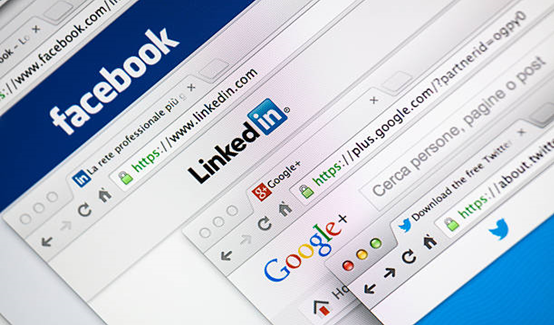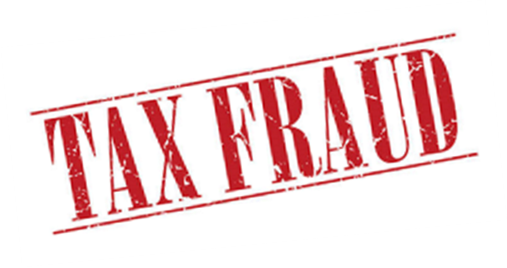News
Tax Talk Newsletter Spring 2023
Managing your Tax Obligations whilst Growing your Business
We've heard it many times, there are two certainties in life - death and taxes. Everybody has to pay Tax. For the self-employed, paying taxes can potentially destroy your business unless you learn to manage it.
So here are a couple of tips on how to manage your tax payments and at the same time successfully grow your business.
The key point...
The key point is to plan for your taxes from Day 1 of your business. Normally your business will make a profit and so you need to make a plan as to how you are going to pay your taxes. Get your Accountant to prepare a cash-flow forecast and financial plan to help you establish how much tax you are likely to have to pay over the next 12 months. Then you need to monitor the actual results against the budgeted results and from this you can accurately increase or decrease the tax payments you need to make throughout the year.
The common 'three provisional payments' method...
Most self-employed will pay their Income Tax through their three Provisional Tax payments throughout the year. (Business people who operate through a Company can put themselves on the company payroll and pay themselves a PAYE deducted salary/wage. This is like paying your tax monthly and it is a great way to keep on top of your tax obligations.)
However, we often find that with the hustle and bustle of everyday business and having slow debtors paying you and having to buy more stock and new assets etc, small businesses struggle with the three provisional tax payments they have to pay each year.
Alternative ways to pay...
We suggest you take the total amount and break it into either monthly or weekly APs which are sent directly to the IRD. So, take a business that needs to pay $9,000 of Income Tax per year. All the IRD requires is 3 payments of $3,000 during the year. So, take the $9,000 and if you want to pay monthly then it works out to be $750 per month. Or if you want to pay weekly take the $9,000 and it works out to be $175 per week. These are far easier amounts to pay rather than large amounts 3 times a year.
Another way to save up for your tax payments is to have a Tax Savings Account and set yourself to put money into the account on a regular basis. However, these Tax Savings Accounts only work if you are an extremely disciplined person but the temptation to use the money for something else often trips up many business owners and when it’s time to pay your tax, the Tax Savings Account is empty!
Be aware of where your cash is going
Remember if you have tax to pay it means you’re making a profit (and that’s a good thing)! If you don’t have any money to pay your tax you need to understand where your profit is going to. Mostly the profit gets taken by owner’s drawings, purchasing of fixed assets, repayment of debt or the increase of stock and/or debtors
Let’s look at those four things mentioned in the last paragraph in more detail.
Be very careful how much you as the owner take from the business for yourself as drawings. The best way for business owners to regulate their personal spending is to pay a fixed amount each week into their personal bank account which is their ‘wages’. This then allows the business bank account to grow and have money to pay for their Income Tax obligations etc.
When you pay cash for a new fixed asset (i.e. you don’t use borrowed money to purchase the asset) you must remember that the money you are using is pure profit that you have generated. So if you spend $10,000 on a new asset then you are using up $10,000 of your ‘cash profit’. What people forget is that you actually have to pay tax on that $10,000 of profit. So, say the tax on that $10,000 is $3,000, when your tax time comes around you have to find that $3,000 from somewhere else in your cash-flow. This is a common problem amongst small businesses that they spend a lot of money on fixed assets which is using up the cash profit then when their Accountant tells them they have a tax bill to pay, they can’t work out why they don’t have any money to pay the tax bill.
Repayment of debt is very similar to buying fixed assets in as much as the principal of the debt you are repaying is using up your cash profit. Some businesses take out too much debt for too shorter a term. This means that they try to pay back their debt too quickly and they run out of cash.
A growing business will often have rapidly increasing stock levels and debtors ledger. Due to rapid sales a business has to buy more and more stock and hold larger stocks to keep all of its customers happy. Then the business may have customers who are slow payers and so suddenly the business runs out of cash.
We have witnessed many times with our clients that when they learn to manage their cash-flow and start a weekly or monthly Automatic Payment they are tremendously relieved that they are able to keep on top of their tax.
Allowances for transport costs
In certain circumstances an employee can receive a non-taxable allowance for additional costs of transport from home to work.
What’s important here is that the cost of travelling from home to work is a personal cost. However, there can be additional costs.
Follow this three-step process to determine whether you can pay a non-taxable allowance for the additional cost of transport:
- Do any of the factors required for the exemption to additional transport costs apply? (See list below.)
- Does the employee incur the additional transport costs for the employer’s benefit or convenience?
- Calculate the additional transport costs and compare them with the allowance paid.
The factors that can give rise to the exemption for additional transport costs are:
- the day or time of day when the work duties are performed
- the need to transport any goods or material for use or disposal in the course of the employee’s work
- the requirement to fulfil a statutory obligation
- a temporary change in the employee’s place of work while in the same employment
- any other condition of the employee’s work
- the absence of an adequate public passenger transport service that operates fixed routes and a regular timetable for the employee’s place of work.
To get a fuller understanding of these factors, look at the Inland Revenue publication Operational Statement 23/01 OS 23/01 this expands on the six points above and provides illustrations.
There is a risk if you pay additional transport costs and circumstances change, the employee might look upon the exempt income as part of their salary/wage package and not be happy about it being cancelled.
The reimbursement for any employee for any one day is limited to 70km.
GST on software payments 
Most of us are now making monthly payments for the use of software. How do you know if you can claim GST on these payments?
Facebook, Adobe and other overseas suppliers are required to register for GST and pay it on the “remote” services they supply to us. To save them compliance costs, they don’t need to worry about charging GST when the purchaser is GST registered. Instead, they can ask you to supply your GST number to show you are registered for GST. If the overseas supplier doesn’t get a GST registration number it charges GST.
So, if you buy an Adobe subscription and you have supplied your GST number to the company, the payment you make doesn’t include GST. You should not be claiming GST on it.
If a GST registered business doesn’t advise it is GST registered, and is therefore charged GST, that can be claimed back if the price of the goods is less than $1000. Over that figure, it has to apply for a refund from the overseas supplier.
LinkedIn and Google have a base in New Zealand and therefore charge GST, so it can be claimed back it the normal way even if it is over $1,000.
How do you know when to claim GST? Look on the invoice. If GST is not mentioned, there’s no claim.
Payments to childcare centres 
Provided a childcare centre is a donee organisation, a payment is five dollars or more and the parent makes the payment voluntarily and does not get any significant benefit in return for the payment, it is a donation for tax purposes and qualifies for the donations rebate.
Former car dealer sentenced on tax fraud 
An Auckland second-hand car dealer has been sentenced to community detention for tax fraud.
The man was sentenced in the Manukau District Court on 4 September to the maximum possible community detention sentence of six months.
He created a false identity, Stephen John Isaacs, using a false New Zealand driver’s licence he had obtained by using a fake US drivers’ licence as proof of identity. He then set up two companies, and listed Isaacs as director and
shareholder.
He also used the NZ drivers’ licence to open bank accounts and to receive correspondence from Inland Revenue. He had twice been disqualified from driving in New Zealand under his own name and said he thought it was a good idea to have a spare in the name of Isaacs in case he was disqualified again.
He claimed GST refunds totalling $309,250.05, for one company $235,870.39 and the second company $73,379.66. However, neither company ever traded.
However, with the added financial stress of supporting family he continued to file false GST returns to relieve his financial situation. He told investigators he knew he was stealing. He repaid $309,250.05 which was the full amount owing.
In April 2021, the Ministry of Business, Innovation and Employment (MBIE) charged him with six charges of knowingly making a false statement in a document required for the purposes of the Companies Act 1993. These were the documents needed to incorporate the two companies.
He plead guilty and was sentenced to serve four months’ home detention in May last year.
Central Otago man jailed on tax fraud
A Central Otago man has been sentenced to 3 years and 1 month in prison on tax evasion charges.
He was sentenced in the Alexandra District Court on 23 August on 47 charges of evading or attempting to evade the assessment and or payment of GST, PAYE and income tax his company, a company of which he was the sole director and shareholder and sole signatory of the bank accounts.
The company predominantly provided security for hospitality venues. But during the COVID pandemic, the company also provided security to MIQ venues at three Auckland hotels, for which it was paid more than $300,000 by the government.
Over 36 months, he evaded the assessment and/or payments of $1,077,548.23 payable for GST, Employer deductions, and Income Tax by a mixture of not filing the Company’s tax returns and filing some returns that materially understated the tax payable.
He was the sole person in charge of the GST accounting and return filing, the wage payments and the PAYE filing.
The company was placed into receivership in January 2021. It was later also placed into liquidation on Inland Revenue’s application in March 2021. All available funds went to the secured creditor who appointed the receiver.
He was not ordered to pay reparation because he has no assets or means to pay.
Someone has to be the most expensive, why not make it you? 
There is a wonderful book called “Someone has to be the most expensive why not make it you.” This book is written by business expert Andrew Griffiths and it has an intriguing message:
Andrew says that the one way to build a rock solid and highly successful business is to focus on becoming the most expensive business in your field.
However there is a catch.
Andrew says that if you want to become the most expensive business in your field you also have to be the best at what you do.
In his book, Andrew explains the exact mental and physical steps you need to take to become successful as the most expensive (and the best) business in your field.
One of the things that Andrew noticed is that over 90% of business owners don’t charge enough. In other works they undercharge the value they offer to their customers.
Andrew uses himself as an example.
The very first business he owned at the 18 was a dive shop he bought in Sydney. The shop sold very cheap dive gear so that’s what Andrew continued selling.
However because it was the cheapest dive gear it often broke down and that made for very unhappy customers.
The bigger problem was that because the dive gear was so cheap Andrew struggled to make a profit each month from his sales.
In fact he was getting further and further into debt every month.
Then Andrew had a stroke of luck. He won $5,000 in lotto and used the money to hire a business consultant to help make his business profitable. The business consultant gave Andrew a list of things to do to turn around his business. 
At the top of the list, the consultant wrote …..
“Someone has to be the most expensive, why not make it you”
The list he gave Andrew included:
Half the amount of stock you carry and double the prices.
Only carry dive equipment that you would personally use yourself.
Stop selling dive gear on credit
Turn you dive shop into a dive boutique
Double the price of your dive courses.
Change the name of your business and offer incredible service.
Commit to becoming the absolute best dive school and retail store on Australia.
Andrew ignored what the business consultant had said as it didn’t make sense to him.
He continued with his dive business losing more and more money. A few months later Andrew was in such a big financial hole he realised that he had to make some drastic changes.
He got new paint and carpet and redecorated his store, he got rid of his cheap dive gear and persuaded a supplier of high quality dive gear to give him a shop full of stock on credit.
Then he doubled the price of everything, held his breath and reopened his business.
From the very first day of reopening his new look Dive Boutique amazing things happened.
Andrew lost most of his old customers who came because he sold cheap gear. And he replaced these cheap price customers with a large number of new affluent customers who loved nothing more than buying expensive dive gear and taking dive holidays. 
In one weekend Andrew sold over 200 high quality and very expensive wet suits!
Now there is a lot more to becoming the most expensive business in your field than just putting up your prices. There are mental steps you need to take and a lot of physical action you need to take as well.
One of the most important lessons from Andrew’s book is that there is a huge difference between ’price’and ’value’.
Source: https://grahamm.me/expensive
Important: This is not advice. Clients should not act solely on the basis of the material contained in the Tax Talk Newsletter. Items herein are general comments only and do not constitute nor convey advice per se. Changes in legislation may occur quickly. We therefore recommend that our formal advice be sought before acting in any of the areas. The Tax Talk Newsletter is issued as a helpful guide to our clients and for their private information. Therefore it should be regarded as confidential and should not be made available to any person without our prior approval.





